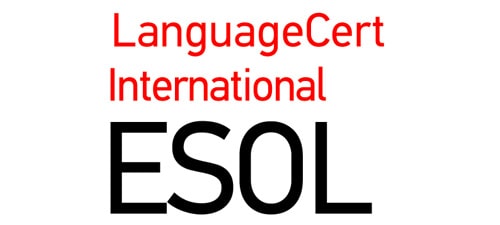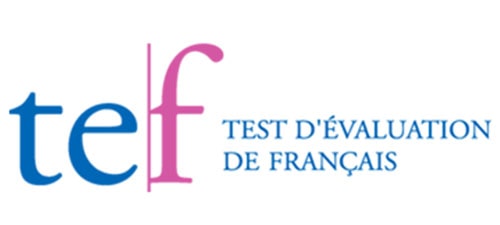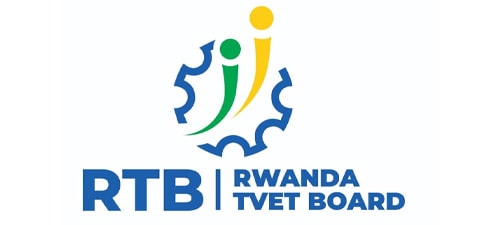Course Description
This course aims to provide an in-depth understanding of dyslexia and related learning disabilities. Participants will learn about the causes, identification, and interventions for individuals with dyslexia. Students will learn about evidence-based interventions and multisensory approaches for teaching and supporting individuals with dyslexia. Accommodations and modifications that can be implemented to better support individuals with dyslexia in the classroom will also be discussed. Strategies for supporting emotional and social well-being will be explored, as well as ways to build partnerships with families and communities for better support.
The legal and policy issues related to dyslexia will be discussed in-depth, including laws and regulations for dyslexia support and accommodations. Current policy debates and implications for dyslexic individuals will also be explored. Additionally, students will explore research directions related to dyslexia, including current research findings and emerging trends and their impact on practice and policy.
The course is designed for education professionals, parents, and anyone who wants to learn more about dyslexia and how to support people with the condition.
Learning Objectives
- Define dyslexia and list its characteristics and symptoms.
- Explore the causes of dyslexia, including genetic and neurological factors.
- Evaluate the different assessments and screening tools for identifying dyslexia.
- Examine the impact of dyslexia on reading, writing, and spelling skills.
- Analyze the various interventions and teaching strategies for supporting individuals with dyslexia.
- Identify the assistive technologies and accommodations that can benefit individuals with dyslexia.
- Recognize the role of parents and caregivers in supporting individuals with dyslexia.
- Develop strategies for advocating for individuals with dyslexia in schools and workplaces.
Teaching methods
There are different teaching methods available to support learners with dyslexia. These methods include:
- Multisensory Approach: This approach involves the use of a combination of visual, auditory, and kinesthetic-tactile sensory modalities to teach reading, writing, and spelling skills. It involves the use of tools like manipulatives, sandpaper letters, and phoneme-based instruction.
- Explicit Phonics: This method involves teaching learners the rules and sounds of the English language, including phonics, phonemic awareness, and spelling. It can help learners with dyslexia who have difficulty decoding words.
- Reading Comprehension Strategies: These strategies can help learners with dyslexia to understand what they read. Strategies like visualization, summarization, predicting, and questioning can help learners to better comprehend the text.
- Technology-Based Instruction: Many dyslexia-friendly tools and software are available to support learners with dyslexia. These tools can help learners with reading, writing, spelling, organization, and memory skills.
- Remedial Reading Programs: These programs are designed to help learners who struggle with reading. They offer intensive, individualized instruction and skills-building for learners with dyslexia.
- Peer Tutoring and Cooperative Learning: Pairing learners with dyslexia with peers who can offer support and encouragement can help build social skills, self-esteem, and academic success.
Note: It’s important to note that teachers and specialists should work collaboratively to identify and implement the appropriate methods and strategies for each learner with dyslexia.
Course Format
- Blended learning with a mix of online and in-person sessions.
- Multimedia resources, including videos, podcasts, and interactive tools.
- Group discussions and case studies.
- Guest speakers from diverse backgrounds, including researchers, educators, and parents of children with dyslexia.
- Self-reflection activities and quizzes.
- Final project or paper.
Course Topics
1. Introduction to Dyslexia
- Definition of dyslexia and its history.
- Characteristics and symptoms of dyslexia.
- Myths and misconceptions about dyslexia.
2. Causes of Dyslexia
- Genetic and familial factors.
- Neurological differences and brain imaging studies.
- The role of phonological processing and working memory in dyslexia.
- Different types of dyslexia
3. The Identification of Dyslexia
- The process of diagnosing dyslexia.
- Types of assessments and screening tools.
- The importance of early intervention.
- Methods of dyslexia assessment
- Standardized tests for dyslexia screening
- The importance of early identification and intervention
4. The Impact of Dyslexia
- Dyslexia’s effect on reading, writing, and spelling skills.
- Deficits in phonological awareness, fluency, and comprehension.
- Dyslexia’s impact on social and emotional well-being.
5. Interventions for Dyslexia
- Evidence-based teaching strategies for dyslexia, including multisensory instruction and Orton-Gillingham approaches.
- The role of assistive technology and augmentative and alternative communication (AAC) for individuals with dyslexia.
- Classroom accommodations and modifications for students with dyslexia.
6. Supporting Parents and Caregivers
- The role of parents in advocating for their children with dyslexia.
- Strategies for supporting parents and caregivers of individuals with dyslexia.
- The importance of building a supportive community for individuals with dyslexia.
7. Advocacy for Dyslexia
- Legal rights and protections for individuals with dyslexia in education and employment.
- The role of advocacy organizations and initiatives.
- Advocacy and education for families and professionals
- Building partnerships with families and communities
- Accessing resources and support networks
8. Teaching and Supporting Students with Dyslexia
- Evidence-based interventions for dyslexia
- Multisensory approaches to teaching
- Accommodations and Modifications
- Strategies for supporting emotional and social well-being
9. Legal and Policy Issues Related to Dyslexia
- Laws and regulations for dyslexia support and accommodations
- Current policy debates and implications for dyslexic individuals
- The role of advocacy and activism in promoting dyslexia rights
10. Research Directions in Dyslexia
Current research findings and emerging trends
The future of dyslexia research and its impact on practice and policy.
Assessment Criteria
- Active participation in discussions and case studies: 30%
- Completion of quizzes and self-reflection activities: 30%
- Final project or paper: 40%
Course reference
- The Dyslexia Handbook: A Guide to Understanding Dyslexia and Adapting Teaching Techniques: This handbook, produced by the Texas Education Agency, provides an overview of dyslexia and what educators can do to support students with dyslexia.
- Overcoming Dyslexia: A New and Complete Science-Based Program for Reading Problems at Any Level: Written by Dr. Sally Shaywitz, a neuroscientist, this book explains the latest research on dyslexia and offers strategies for parents and educators to help children with dyslexia.
- Understanding Dyslexia and Other Learning Disabilities: A Parent’s Guide to Understanding Dyslexia, ADHD, and Other Learning Disabilities: This guidebook provides parents with practical, easy-to-understand information about dyslexia and other learning disabilities, including guidance on how to get a proper diagnosis and how to support their child’s learning.
- The Yale Center for Dyslexia & Creativity: This center provides information on dyslexia, including research, articles, and resources for families and educators.
- International Dyslexia Association: This organization offers resources and support for people with dyslexia, their families, and educators. Their website features webinars, books, and articles related to dyslexia.
- Understood: For Learning & Attention Issues: This website provides a wide range of resources for families and educators of children with dyslexia and other learning and attention issues, including articles, webinars, and tools.
- Dyslexia Help: This website, created by the University of Michigan’s Dyslexia Center, provides resources and support for families and educators working with students with dyslexia. The site features articles, videos, and resources for downloading.
- Decoding Dyslexia: This grassroots organization focuses on raising awareness of dyslexia and advocating for better policies and support for those with dyslexia. Their website includes information on state-specific advocacy efforts, resources for families, and success stories of individuals with dyslexia.
- Dyslexia Action: This UK-based organization provides resources and support for people with dyslexia, their families, and educators. Their site includes articles, webinars, and information on training and professional development opportunities.
- The Dyslexic Advantage: This book by Drs. Brock Eide and Fernette Eide challenges the traditional view of dyslexia as a deficit and instead highlights the strengths and advantages associated with dyslexia. The book provides practical advice for parents and educators on how to support these strengths and unlock the potential of individuals with dyslexia.









